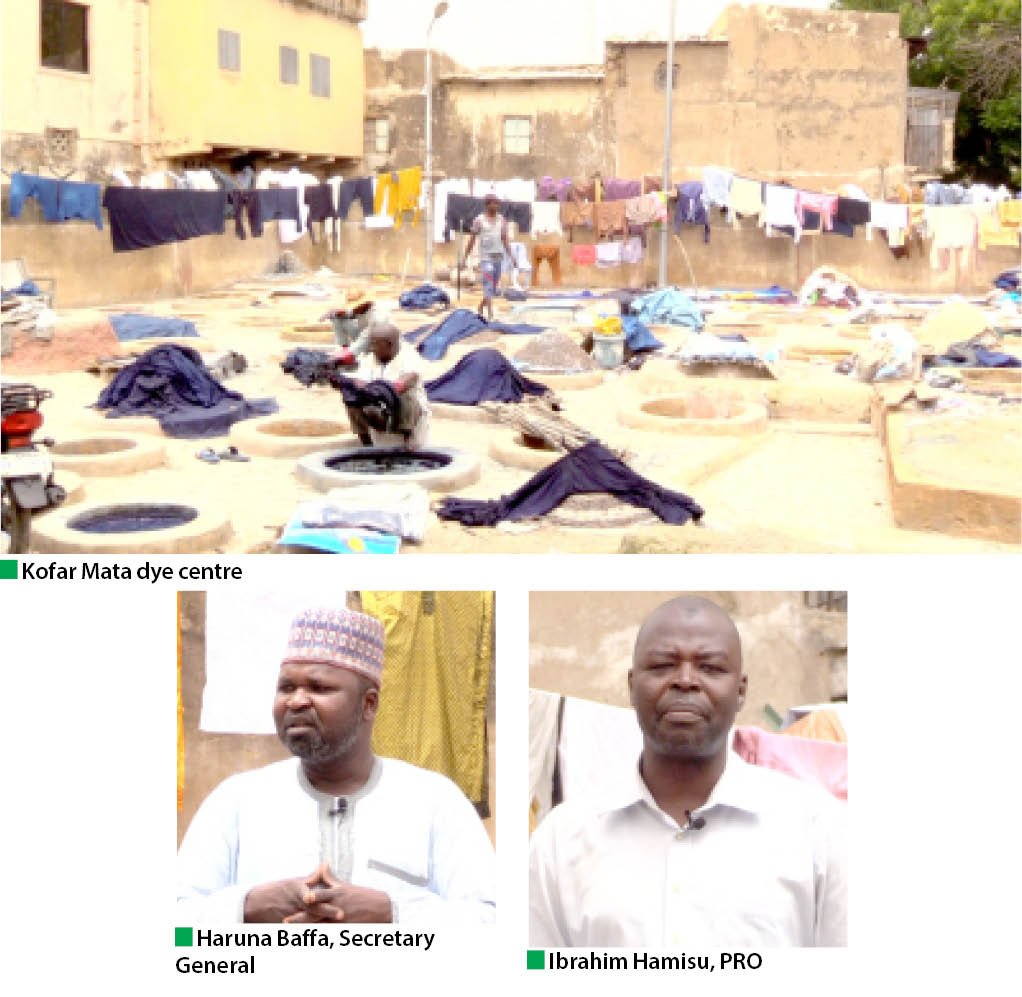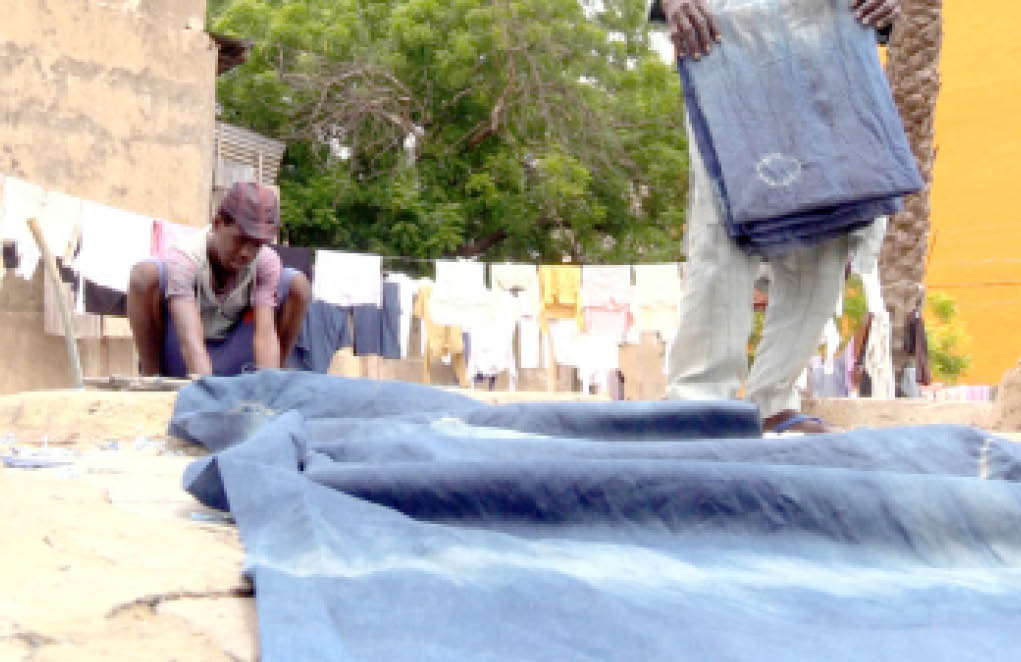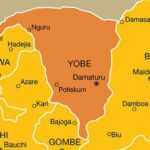The popular and historic 525-year-old Kano dyeing pit situated in the ancient Kofar Mata area in Kano State is currently facing extinction. In a recent visit to the once fascinating, ever-busy dyeing pit, our correspondent observed that it is now in shambles.
It was also observed that few people work as dyers in very few functional pits.
The Kofar Mata dyeing centre was established in 1498 by Muhammadu Dabosa, who came to settle in Kano from Rimaye in the present day Katsina State. Beside being a farmer, Dabosa began the dyeing of cloths as a family craft, and since then, the family has been running the business.
The historic Kofar Mata pit is one of the historical monuments in Kano State. The centre has served as a first port of call to national and international guests and tourists who visited Kano State on either official or personal engagements.
While the centre serves tourism purposes and is visibly noticed by passersby, it is clear that one could pass the Kofar Mata without noticing the centre, which is located by the roadside, with petty traders displaying their goods along the old perimeter fence.
FG urged to adopt Uwais electoral reform report to save democracy
FG targets 40m jobs in 2 years from methanol technology
Moving into the pits area, one is greeted with a display of many dyeing pits, amounting to 144. However, not more than five are now functional, just to keep the business going.
Daily Trust on Sunday reports that majority of the pits now serve as dumpsites, majorly with plastic waste mixed with water, a situation that could trigger pollution and lead to outbreak of diseases.
Speaking on the situation, the secretary of the centre, Haruna Baffa, said the act was on purpose despite that it didn’t look healthy.
“Normally, when we leave the place open the sun hits the pits and they crack, that is why we leave the refuse inside, but if we can get orders from people, we can open all the dye pits.
“Two years back, the business was moving more than this. We are now facing problems, especially since the naira redesign era. The business is not going well. Normally, the people provide the money and we buy the fabrics. We used to buy one yard at N400, but it is now N700. It is very expensive,” he said.

He said many people had left the business they inherited from their parents and sought for other avenues to earn a living, adding that it is only through miracle and patriotic act on the part of the operators that the business is still afloat to this day.
“Many of us have resorted to other businesses because this one is no longer lucrative here.
“Female members of the family are equally involved in the business because they are the ones who create the beautiful designs on the fabrics that are already dyed by the men.
“A lot of tourists come to us from all over the world to have a look at how we operate and how we have managed the use of the same method we inherited to produce such textile materials with excellent quality,” he said.
According to the secretary, records exist to show that fabrics made by Kofar Mata dyers were adjudged the best over the years. He added that their ancestors told them that a Kofar Mata-finished fabric was always in high demand, especially during festive periods.
“Kofar Mata-finished fabrics were the best among what we sold here in those days. We usually ran out of stock due to high demand by people from Mali, Togo, Niger, Senegal and some countries in Asia and Europe. We were not only rich but also proud of the craft,” he added.
He further lamented that with the intrusion of the Chinese into the dyeing business, thousands of youths across the state were rendered jobless as the foreigners were allowed to import low and cheap quality fabrics made from plastic fabrics instead of cotton into Nigeria.
The dyeing business has continued to suffer neglect from successive governments as those in it complain of lack of support and encouragement from the authorities concerned, as well as the coming of the Chinese into the business.
On his part, Ibrahim Hamisu, popularly known as Babaliya, who is the public relations officer of Kofar Mata Dyeing Centre, further pointed out that the pits, popularly called ‘tukunyar baaba,’ were up to 144 in number.
“We have them in different sizes. There were those of 6 metres, 4 metres and 3 metres. During that time, if someone intended to throw stones into this factory, it would have landed directly on people here. This is because everywhere used to bustle and business was booming. We produced goods and worked from morning until night everyday. But as you can see now, the place has gone down and there are many reasons for that.
“This place is a prominent. We do business with expatriates, including white people from Italy. We do business with people from African countries, such as Niger, Senegal and Mali.
“However, insecurity, particularly in the North, have been a key contributor to the decline in our business as these people no longer feel safe to come. We know it was not always like this; and we are hopeful that soon, this shall become history.
“Normally, two people worked in a pitch, one person at each side. We had up to 50 male workers in the factory. There were about 30 female workers who make the designs from home and bring it here for us to dye.
“In total, in the past we had about 80 workers here, both males and females. And that was just between the time of the Buhari administration and the present administration.
“In the past, everybody knew how thriving this business was because the youth were serious with it. We had a lot of people who patronised us, as well as those who brought their goods for dyeing.
“It was with the coming of this new administration that everything changed, but we are hoping that everything would go back to how it used to be and even more.
“As you know, every business has its season. Just like other textile businesses, ours too thrives more during festive seasons,” he said.
Reacting to the situation, the executive secretary, Kano History and Culture Bureau, Ahmad Abba Kabir, said they were determined to upgrade the facility since they have the responsibility of protecting, conserving and developing the history and cultural heritage, sites and monuments in Kano State.
He said, “Taking into cognizance the socioeconomic significance of the dyeing pit, the present administration is committed to uplifting the status of Kano. The History and Culture Bureau has made proposals to the state government to gather such historic sites, and this is part of it.
“We are working to upgrade its physical structure to a world class facility in modern dyeing. And it will go a long way in creating opportunities for our teeming youth.
“We are working on bringing befitting architectural designs; and I assure you that you will see all I am telling you in due course.
“We are also working to partner with organisations, both at the local and international level, to see how best we can develop this important facility.”

 Join Daily Trust WhatsApp Community For Quick Access To News and Happenings Around You.
Join Daily Trust WhatsApp Community For Quick Access To News and Happenings Around You.


